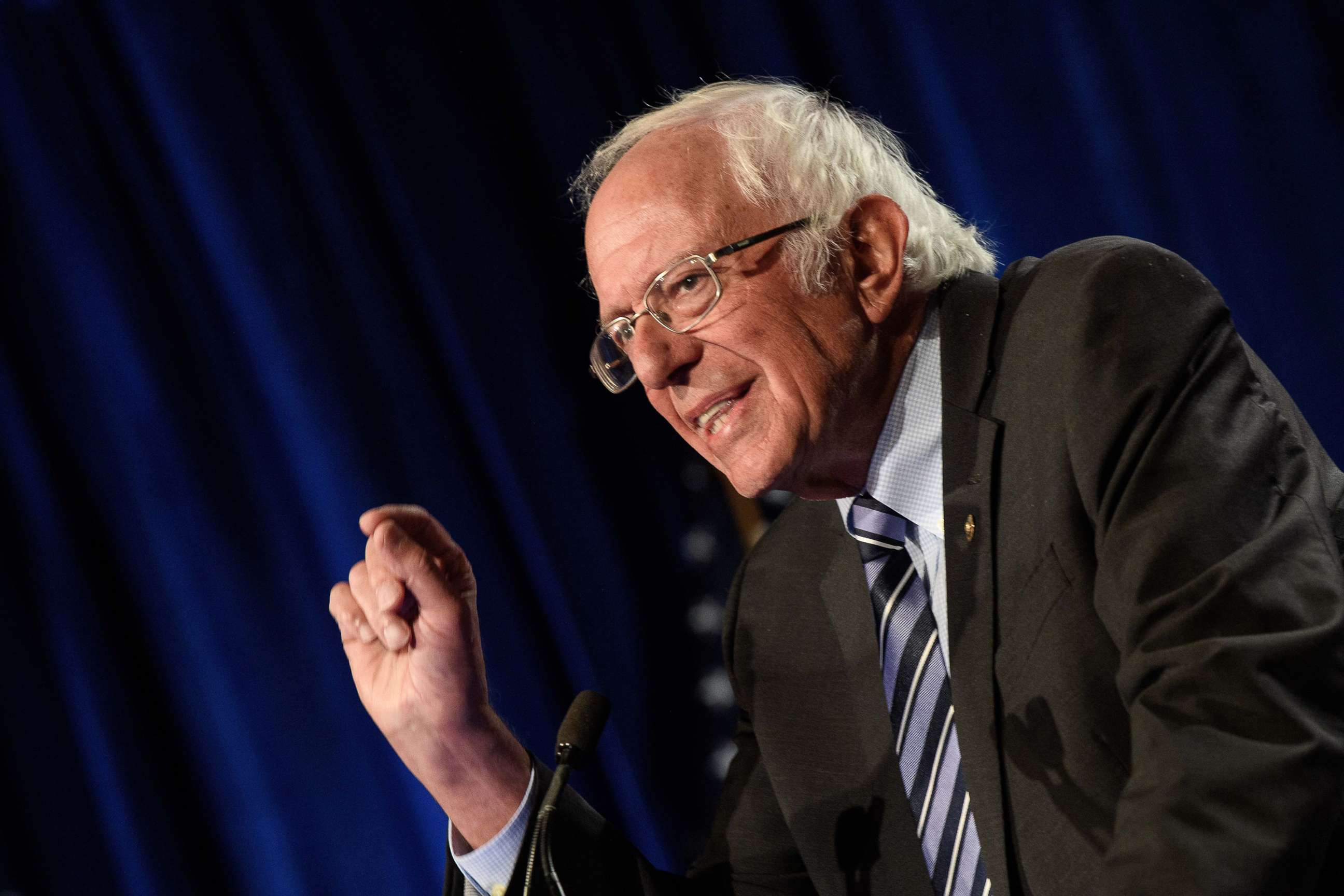'You can't diddle around': Sanders, despite misgivings, urges Trump to sign coronavirus relief bill
Trump refused to sign the bill without the inclusion of $2,000 direct payments.
Sen. Bernie Sanders, one of the leading advocates for government-issued direct payments to Americans amid the COVID-19 pandemic, argued Sunday that despite his -- and President Donald Trump's last-minute -- reservations about the size of the checks within the currently stalled relief bill, it needs to be signed immediately.
"My view is that, given the terrible economic crisis facing this country, yes, we do need to get $2,000 out to every working-class individual in this country, $500 for their kids -- but you can't diddle around with the bill," Sanders, I-Vt., told ABC News Chief White House Correspondent Jonathan Karl on "This Week" Sunday.
Though the relief package, as passed last week by Congress, contains checks for $1,400 less than the senator -- and later, Trump -- lobbied for, Sanders proposed an alternative solution in a directive to the White House.
"Sign the bill, Mr. President, and then immediately -- Monday, Tuesday -- we can pass a $2,000 direct payment for the working families of this country," Sanders said.
The $900 billion relief legislation, passed by both chambers of Congress last week, remained in limbo Sunday as Trump has refused to sign the bill without the inclusion of $2,000 direct payments. The current package includes $600 checks for Americans who earn less than $75,000 per year, half of the $1,200 mailed out earlier this year.
The end-of-year compromise arrived after months of negotiations stretching back to May, when House Democrats passed a $3 trillion bill. The Trump administration, concerned about the overall cost, initially put forth a $1 trillion counterproposal, before later increasing the total by another $800 billion in October -- a proposal Democrats rejected.
"Was that a mistake in hindsight?" Karl asked on "This Week." "Should Democrats have taken them up on the offer of a $1.8 trillion relief bill?"

"All I can tell you, Jonathan, is that given the enormity of the problems that we are facing, $900 billion is simply not enough," Sanders said. "We should have been talking about at least double that, maybe even more."
The senator said, however, that at no point in the negotiations did Treasury Secretary Steven Mnuchin -- who led talks on behalf of the administration -- express Trump's preference for $2,000 direct payments now delaying the signing.
"Not a word," Sanders said.
Overnight, two federal pandemic unemployment programs expired, leaving millions of Americans without financial assistance as the COVID-19 outbreak continues to disrupt the economy and result in business closures. A potential government shutdown also looms Monday at midnight, as the relief bill is tied to federal appropriations legislation for the 2021 fiscal year.
"So you’re not going to have all the protections that working people need and then on top of that, we may be looking at a government shutdown in the midst of the most difficult moment in modern American history," Sanders said. "It is insane. It is really insane and this president has got to finally … do the right thing for the American people and stop worrying about his ego."
Democrats -- with whom Sanders caucuses -- are hopeful that the current bill will be merely the first step in providing additional support to the public, businesses and state and local governments. President-elect Joe Biden has indicated that his incoming administration will push for another round of relief come late January.
"If we can get through this Trump administration the next few weeks without doing terrible harm to the American people, I suspect one of the first items on the Biden agenda will be following up on what we’re doing here in providing that kind of assistance," Sanders said.
The senator also repeated his disappointment with the ideological composition of Biden's Cabinet nominations thus far. After finishing second to Biden during this year's Democratic presidential primaries, Sanders formed policy recommendation task forces with the former vice president and claimed Biden had a chance to be "the most progressive president" since Franklin Roosevelt.
But on "This Week," the senator said the president-elect has yet to deliver on providing a Cabinet position for the "progressive movement, which he claims comprises "35 or 40% of the Democratic coalition" and "deserves seats."
Pressed by Karl about one of the high-profile positions for which a nominee has yet to be named, Sanders expressed further dissatisfaction.
"Some reporting suggest(s) Merrick Garland is the front-runner (for attorney general)," said Karl. "Would Merrick Garland be a progressive enough choice from your perspective?"
"I think we could probably have a stronger progressive than him," the senator said. "But I’m not going to comment on Biden’s particular appointees."




